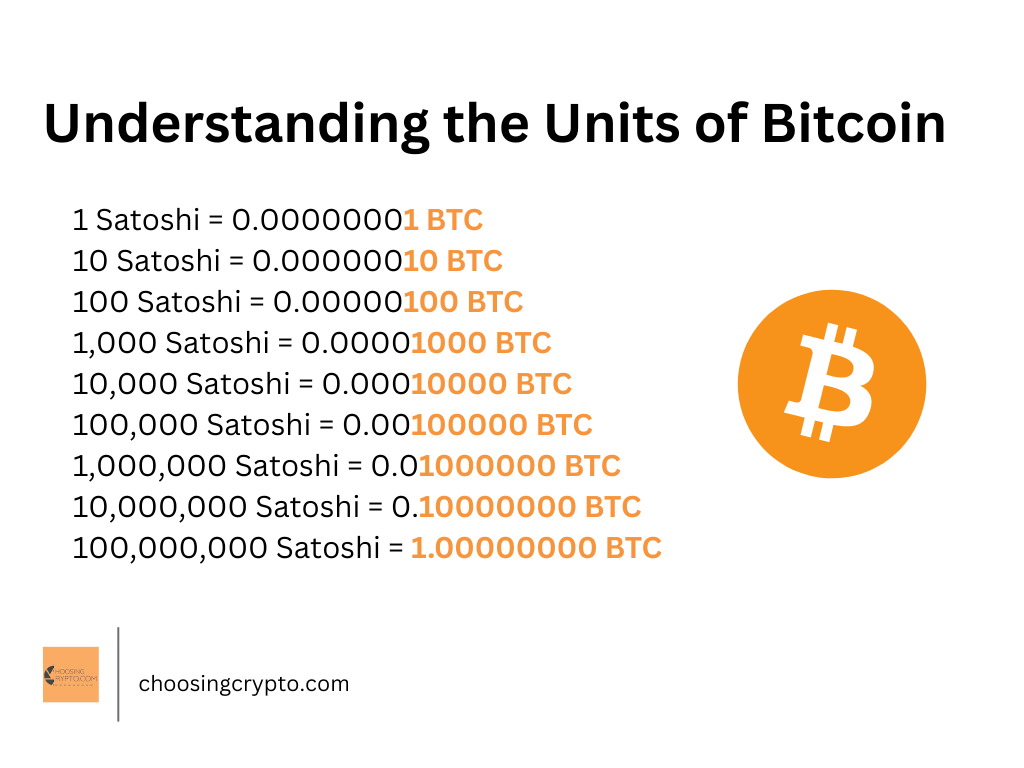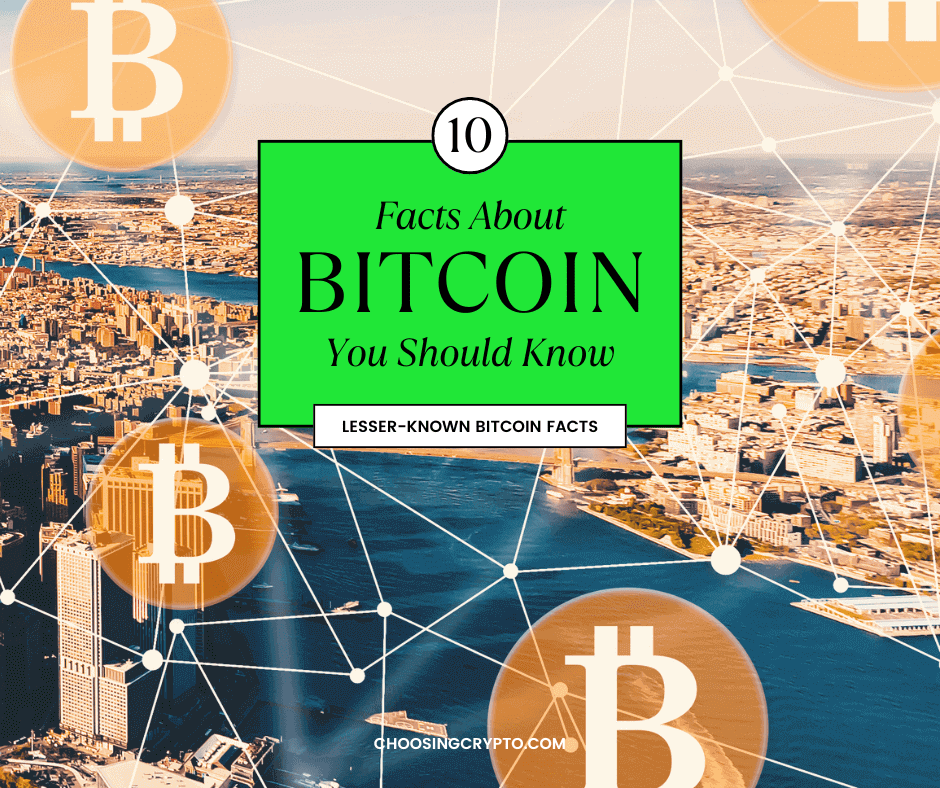Did you know no one really knows who created Bitcoin? The identity of its founder, known only as Satoshi Nakamoto, is still a mystery, and they could be holding billions in untouched Bitcoin.
Bitcoin isn’t just internet money. It’s a complete shift in how people think about money, value, and financial control. Some have already transformed their lives with it. But billions still don’t fully understand what it is or why it matters.
What you don’t know about Bitcoin could be the difference between being part of the next big shift or watching it happen from the sidelines.
In this post, you’ll discover 10 surprising facts about Bitcoin that most people, even some crypto investors, haven’t heard.
New to crypto? I offer beginner-friendly 1-on-1 coaching, and your first session is free. Check it out here.
10 Facts about Bitcoin
These are the lesser-known facts about Bitcoin; trust me, some will surprise you.
1. Bitcoin’s Creator is Unknown — and May Be Dead
The true creator of Bitcoin is still a mystery. The name “Satoshi Nakamoto” appears on the original whitepaper, but no one knows who that really is. Satoshi stayed anonymous, communicating only through emails and forums, then vanished in 2011, never resurfacing.
Before disappearing, Satoshi mined about 1 million bitcoins. Today, that stash is worth over $90 billion, and it’s never been touched.
It remains one of tech’s greatest unsolved mysteries. The world’s most valuable cryptocurrency was created by someone who chose to walk away from fame, credit, and an unimaginable fortune. Was it a stroke of genius, a deliberate escape, or something else entirely? No one knows. And that silence only adds to Bitcoin’s mystique.
2. The Last Bitcoin Will Be Mined in the Year 2140
Bitcoin has a hard cap: only 21 million will ever exist. Unlike traditional currencies, which can be printed endlessly, Bitcoin’s supply is fixed and released gradually. What many don’t know is that the last Bitcoin won’t be mined until the year 2140.
Why so far off? Every four years, the reward for mining is cut in half. This process, called “halving,” reduces the rate at which new coins enter circulation and increases scarcity over time.
So far, over 19.8 million bitcoins have been mined. But reaching the final few will take more than a century. That delay isn’t a flaw; it’s intentional. Bitcoin’s limited supply is built into its code, designed to preserve value and resist inflation.
3. 20% of all Bitcoin is Lost Forever
About 20% of all Bitcoin, roughly 3.8 million BTC, is believed to be gone for good. That’s billions lost to forgotten passwords, misplaced private keys, discarded hard drives, or owners who passed without sharing access. With only 21 million bitcoins ever to exist, every lost coin shrinks the supply and boosts scarcity.
One of the most famous cases is James Howells, a UK IT worker who accidentally threw away a hard drive holding 8,000 BTC in 2013. Today, that mistake is worth over $700 million.
Bitcoin isn’t just digital money; it’s digital responsibility. So, if you own some, back up your wallet and protect your private keys. Make sure someone you trust can access it if needed. Don’t become another lost coin statistic.
Worried about losing your crypto? I can guide you step-by-step on how to keep them safe. Your first session is free. Start here.
4. The U.S. Government Owns a Lot of Bitcoin
Surprisingly, the U.S. government is one of the largest Bitcoin holders. Most of it comes from criminal seizures, including darknet busts like Silk Road and major hacks.
One notable seizure involved over 69,000 BTC from Silk Road. Another brought in 94,000 BTC linked to the 2016 Bitfinex hack. Together, that’s billions in Bitcoin now sitting in U.S. Government-controlled wallets.
In March 2025, President Donald Trump signed an executive order creating a Strategic Bitcoin Reserve. It turns seized Bitcoin into a long-term national asset. The order blocks any sale and integrates it into a broader financial strategy.
Trump has said he wants the U.S. to become the “crypto capital of the world.” This move signals he’s serious.
5. Bitcoin Doesn’t Need Banks or Permission
One of Bitcoin’s most powerful features is that you don’t need a bank or anyone’s permission to use it.
In traditional finance, moving your own money can mean waiting on banks, approvals, and risking delays or freezes.
Bitcoin changes that.
It runs on a decentralized, peer-to-peer network, letting you send, receive, or hold funds directly. Whether you’re in a major city or a small village with no bank in sight, if you have a phone or computer, you can use Bitcoin. No one can block you.
This isn’t just about sending money. It’s about control, access, and financial freedom. You’re in charge. No permissions. No middlemen. Just you and your money—anytime, anywhere.
6. Bitcoin Can Be Used Without the Internet
Many assume Bitcoin requires an internet connection, but that’s not always true. It can be sent and received through satellites, radio waves, or even SMS—no internet required.
For example, Blockstream Satellite broadcasts the Bitcoin blockchain from space. Allowing anyone with a dish and a simple receiver to access the network from anywhere on Earth.
Transactions can also be broadcast via radio or text and relayed to the blockchain by someone with internet access.
This makes Bitcoin incredibly resilient. It’s more than just internet money—it’s offline-capable digital currency. So, in emergencies, natural disasters, or under censorship, Bitcoin can still function when banks, apps, and mobile networks shut down.
7. Bitcoin is Not Anonymous — It’s Pseudonymous
Many believe Bitcoin is anonymous, but that’s only partly true.
Every transaction is recorded on the public blockchain. Anyone can view wallet addresses, amounts, and full transaction histories. These addresses aren’t tied to names, but they can often be linked to real people through exchanges, IP addresses, or spending patterns.
In fact, law enforcement and blockchain analysis companies regularly trace Bitcoin transactions to catch fraud, hacks, or illegal transactions.
Bitcoin is better described as pseudonymous, not fully private. If complete anonymity is your priority, there are other cryptocurrencies designed specifically for anonymous transactions.
Bitcoin gives you control over your money, but not full privacy. And many users don’t realize the difference until it’s too late.
8. Bitcoin Doesn’t Live in Your Wallet — Only Your Key Does
Here’s a common myth: Bitcoin isn’t actually stored in your wallet. What your wallet holds is a private key—a unique code that proves you own certain Bitcoin.
The coins themselves never leave the blockchain. They are recorded on the public ledger. Your private key gives you access to the Bitcoin linked to your address.
So, your wallet doesn’t store the coins—it stores the keys to unlock them. Lose that key, and your Bitcoin is gone forever. There’s no way to get it back.
That’s why keeping your private key secure is one of the most important responsibilities of owning Bitcoin.
9. You Can Own Less Than One Bitcoin
Many people still think you need to buy a whole Bitcoin, but you don’t.
Bitcoin is divisible down to 0.00000001 BTC, called a Satoshi. That means you can start with €20, $50, or whatever fits your budget. Even if one Bitcoin costs tens of thousands, you can still own a fraction.
This flexibility makes Bitcoin accessible to almost anyone, anywhere. In fact, most holders don’t own a full coin—and that’s completely normal.
It’s not about buying a whole Bitcoin. It’s about owning a piece of something scarce, global, and revolutionary.

10. You Don’t Have to Buy Bitcoin to Own It
One of the most overlooked facts about Bitcoin is that you don’t have to spend money to get Bitcoin.
You can earn it by doing freelance work, joining affiliate programs, earning cashback while shopping, or completing simple online tasks.
There are also play-to-earn games and learning platforms that reward users in Bitcoin. No investment required.
This opens the door for anyone to get started. So, whether or not you have money to invest, Bitcoin is still within reach. All you need is a phone or computer and an internet connection.
Want personal help with crypto? I offer 1-on-1 coaching, and your first session is free. Book your free session here.
Additional Resources:
And guess what? We’re also on Instagram and Twitter(X). Join us there for even more fun and useful content!

DISCLAIMER:
The information provided here is for informational purposes only. Do not rely solely on it for making investment decisions. It is not financial, tax, legal, or accounting advice. Always do your own research or consult a financial advisor before investing in cryptocurrency.
